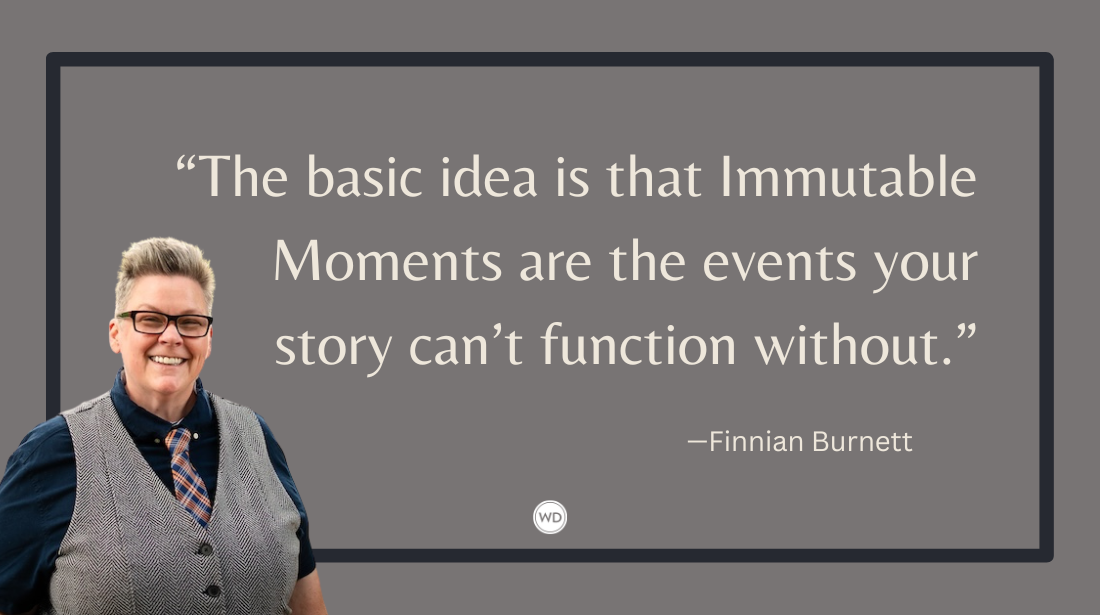6 Tips for Confidently Writing Historical Fiction
Author Jaclyn Goldis shares her six tips for writing historical fiction, whether its about Regency England or a Jewish community on a Greek island that fell under Nazi occupation.
Crafting historical fiction begins long before typing the first word. When I set out to write my now debut novel, I had a kernel of a character: An old Jewish woman who confronts her painful, buried past as a teenager during the Nazi occupation of the Greek Ionian islands.
I zeroed in on Corfu and the tragic, little-known story of its small Jewish community who fell into Nazi hands. But I immediately apprehended what might be an obstacle to my research: 2,000 Jews lived on Corfu before the war, and 1,800 of them were murdered in Auschwitz. The Jewish community on Corfu presently numbers around 20, most of whom are elderly.
Writing historical fiction is on its face a challenge because a writer must recreate an unfamiliar world, choosing a specific place and time period in the past and ensuring that both characters and plot remain faithful to its conventions and events. But an extra hurdle is writing historical fiction about a people about whom little is known. However, it is certainly doable. Here are my top tips.
6 Tips for Confidently Writing Historical Fiction
1. Read and Watch Widely.
To start, scour the world of available information. Some eras—Regency England, for instance—have inspired many takes on the time period, both fictionalized and not. For authors writing about such time periods, the information-gathering stage will be characterized less by grasping for relevant material, and more by sifting through it. (And what could be more fun than watching Bridgerton in the aim of research?)
However for my project, other than very basic information, I found scant English-speaking primary or secondary sources on Jewish life in Corfu during World War II. So I cast a wider net and came across The Durrells, a British series set on Corfu in the late 1930s, based off of a British memoir. I both watched and read, and while the main characters are neither Jewish nor Greek, and the war years are not depicted, I found an abundance of relevant material, including flavorful descriptions of flora and fauna in the early 20th century and of the vibrant Jewish quarter that existed before the war.
2. If Possible, Travel, and Take Lots of Research Photos.
While a luxury and certainly not always possible, I cannot overstate the value of traveling to the place you are writing about. After reading and watching what I could find, I crafted a rough outline of my story, and now I had a plethora of questions to which I still needed answers. Plus, I wanted to feel the spirit of the place. The three weeks I spent doing research in Greece, including nearly a week on Corfu, gave me an experiential backdrop that is difficult to duplicate from afar.
There is something powerful and transporting about touching the banister at the synagogue that will be pivotal to your story. Plus, through my travels, I connected with an expert on Greek Jewry, who translated more abundant Greek sources into English for me. His elucidations both grounded my story and inspired new creative directions.
Bonus tip? Research people on the ground with whom you would love to speak, and reach out to see if they will meet with you. I’ve found that people are exceedingly generous and kind and often enjoy sharing their wisdom and experiences.
Throughout my travels, I took constant pictures. Taking pictures as an author is different from taking pictures as a tourist. If you were to glance through my Greece trip’s roll, you would see ugly shots of streets and buildings and museum artifacts interspersed among the more picturesque vistas. When back home and writing, I found it inspiring to glance at those nondescript streets and imagine what the cobblestones of nearly a hundred years prior looked like beneath my characters’ feet. And sometimes the pictures answered questions I only formed later.
For instance, as my characters embarked into their now scripted world, I wondered what kind of clothing they’d be wearing. I was then grateful I had photographed ordinary family photos from the relevant time period that hung at The Jewish Museum of Greece. If you aren’t able to travel and take pictures yourself, though, there is much to be said about a good dig through Google images.
3. Interview Experts and Other Sources.
There is no substitute for conversations with experts in the field, as well as people with first and second-hand knowledge. In addition to the expert I met in Greece, I connected with many others whom I found in such varied ways as posting in Facebook groups with Greek Jews and reaching out to the director of a Greek Jewish synagogue in New York. Books and TV can only take you so far.
It was people who really helped my story blossom, and often, one person led to another. Sometimes my interviews required more onerous or unconventional methods, like traveling an hour away to meet with an interviewee in person, or borrowing an external hard drive to watch a CD documentary generously shipped by a Greek man I interviewed by phone. But the slight hurdles I had to scale were exceedingly worth it, as the holes in my research slowly filled in.
*****
Read When We Were Young, by Jaclyn Goldis
(Writer's Digest uses affiliate links.)
*****
4. Exercise Artistic License.
After you know your historical world enough—and you will know it when you do—feel free to trot out your artistic license. You’ve done the research. You’ve scoured all there is to scour. You know the milestone events of the time to weave in. You’ve developed a sense of the land and its people.
You will never know the world like the people who lived it, because that is an utter impossibility. So trust that you know it enough, and now don’t feel too confined. Even more so, feel empowered to put your stamp and voice on it, creating a version of the past that only you can write.
5. Only Use the Information That Serves the Story.
By now, you will have gathered a lot of information. Resist the urge to put it all in your book. Be discriminating on which pieces serve your story, and which will read as unnecessary exposition that drags the pacing.
*****
Whether history is a backdrop to your story or the focus of the story itself, this workshop will provide you with the tools to find the facts you need, organize the data in a functional manner, and merge that data seamlessly into your novel.
*****
6. Keep a Running List of Questions and Circle Back.
Writing historical fiction requires a heavy chunk of inquiry up front, followed by sporadic “check-ups” as you write and refine. So keep a list of further questions that will inevitably crop up.
For instance, I realized that I was writing a 16-year-old girl at school—but did girls go to school at that age then? Also, the girl was speaking Greek—but was that accurate? The Jews on the island were a diverse and divided bunch who spoke several languages, and follow-up questions with some of my previous interviewees helped me clarify.
These fine-tuning questions can really only be asked toward the end of the process, when you know your story and your characters and their world. And by this point, I had mined many people with relevant wisdom and experience. They had all generously invited me to be in touch with anything further, and I gratefully took them up on it.
Even with all my research, I wouldn’t be surprised if I made mistakes. But as Voltaire has illuminated for us, perfection can’t be the enemy of good. Because if it is, these stories—important stories—will never be told. And this is fiction, after all. You’ve done your digging. Now let your characters scamper off to do and say what they may.
Jaclyn Goldis is a graduate of the University of Michigan, Ann Arbor, and NYU Law. She practiced estate planning law at a large Chicago firm for seven years before leaving her job to travel the world and write novels. After culling her possessions into only what would fit in a backpack, she traveled for over a year until settling in Tel Aviv, where she can often be found writing from cafés near the beach. She is the author of The Chateau and The Main Character.








